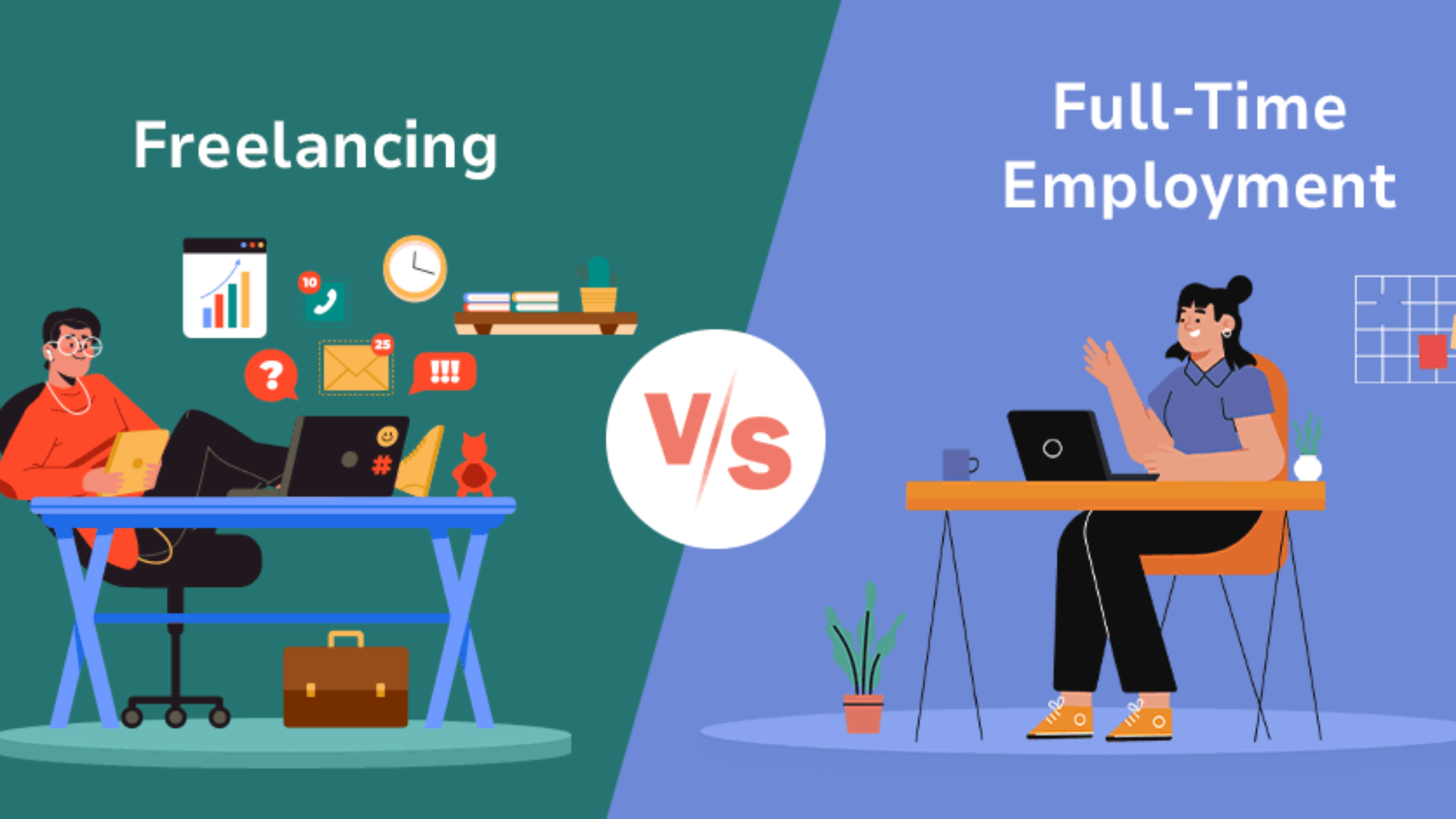The modern workforce is rapidly evolving, with freelancing becoming a viable alternative to traditional full-time jobs. Whether you are an experienced professional or a fresh graduate, choosing between freelancing and a full-time job is a critical career decision. Both options offer unique benefits and challenges, and the best choice depends on your skills, goals, and lifestyle preferences. Let’s explore the key differences to help you determine what suits you best.
1. Flexibility and Work-Life Balance
One of the biggest advantages of freelancing is the flexibility it offers. Freelancers can set their schedules, choose their projects, and work from any location. This level of freedom allows for a better work-life balance, making it ideal for individuals who prefer autonomy and varied work experiences.
In contrast, full-time jobs come with fixed working hours and a structured environment. While this can provide stability, it may also limit personal time and flexibility. However, many companies now offer remote or hybrid work options, bridging the gap between freelancing and traditional employment.
2. Income Stability and Financial Security
Freelancing can be lucrative, but it often comes with inconsistent income. Work availability, client payments, and market demand influence earnings. While successful freelancers can earn significantly more than salaried employees, the financial instability may be stressful for some.
Full-time jobs provide a steady paycheck, employee benefits, and financial security. Salaried employees receive health insurance, paid leaves, retirement plans, and other perks that freelancers must arrange independently. If financial predictability is a priority, a full-time job may be the better choice.
3. Career Growth and Skill Development
A full-time job offers a structured career path with opportunities for promotions, professional training, and networking within an organization. Employees can gradually build expertise in their field and gain leadership roles over time.
Freelancers, on the other hand, must actively seek opportunities to upskill and expand their network. While they gain diverse experiences from working with multiple clients, career progression is less linear compared to corporate employment. Those who value structured growth may find a full-time job more suitable.
4. Job Security and Benefits
Job security is one of the main reasons people prefer full-time employment. A steady income, contractual agreements, and company-provided benefits make it a safer option. Employees also have legal protections, making layoffs less frequent and manageable with severance packages.
Freelancers do not have job security as work depends on client demands. They must consistently market themselves and secure projects to sustain their careers. Additionally, they do not receive company-provided benefits and must handle taxes, insurance, and retirement savings on their own.
5. Freedom and Work Environment
Freelancers enjoy creative freedom and control over their workload. They can work on projects they are passionate about and avoid workplace politics. However, freelancing can also be isolating, as there is minimal social interaction compared to office environments.
A full-time job provides a structured environment with a defined hierarchy and team collaboration. This setting can be beneficial for individuals who thrive on teamwork, mentorship, and social engagement at the workplace.
Which One is Right for You?
- Choose freelancing if: You enjoy flexibility, independence, and working on diverse projects. You are comfortable with irregular income and self-managing tasks such as taxes and client acquisition.
- Choose a full-time job if: You prefer stability, steady income, and structured career growth. You value benefits like health insurance and paid leave, and you thrive in team-based environments.
Final Thoughts
Both freelancing and full-time jobs have their pros and cons. The right choice depends on your personal and financial goals, risk tolerance, and work preferences. Some professionals even combine both by freelancing as a side hustle while maintaining a full-time job. Understanding your priorities will help you make an informed career decision that aligns with your aspirations and lifestyle.


Add a Comment